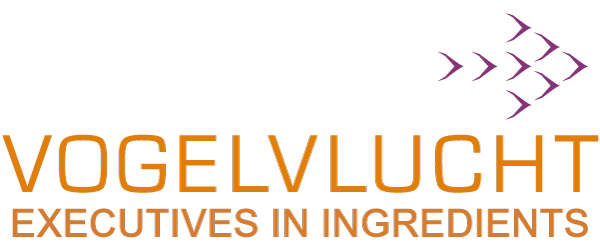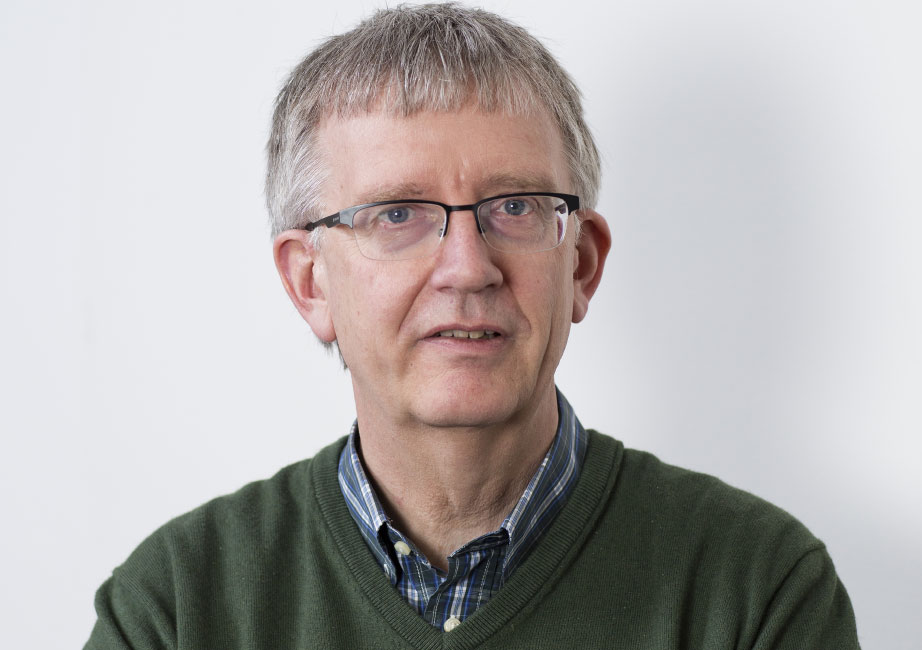Doede Binnema, lecturer Biobased Ingredients aan de Hanzehogeschool Groningen, wants to contribute to sustainable agriculture and healthy food. Agriculture which produces ‘green resources’ as a base for healthy products, in a sustainable and profitable way. In a passionate way he talks about the influence of nutrition on our health and the role of the lecture biobased ingredients in the development of new nutritional products.
“Producing green resources in a sustainable and profitable way”
What according to you is the most important development in the food industry?
There are multiple important developments. Right now the focus of sustainability is circularity: reusing resources, materials and packages. The focus of our lecture hall is ‘biobased’: renewable green resources from the agricultural sources which can be turned into valuable food ingredients. Important in that is that the consumer increasingly gains an interest in health and healthy nutrition. Besides, increased interest in local produce and available food is something we have seen for a longer amount of time. A general point of attention remains food waste. In non western countries, a relatively significant amount of produce stays in the field: agrarian production and logistics should be more efficient. On the other hand the western consumer buys products which have been very efficiently produced by the agricultural chain but lets a lot of it go to waste at home.
Is our agrarian production at all sustainable?
Sustainability is a term especially present in organic farms. These farms know that it’s about the long term. In preventing soil dehydration and soil depletion, there is a lot of terrain at stake. In about fifty years, won’t be able to reach the same levels of production as today, if we keep going the same way we are now. That has nothing to do with climate change by the way, but everything with intensive agricultural methods. Farmers have had to focus on producing as efficiently as possible. The current low price they receive for their products is only just profitable with the intensive highproduction agricultural methods used. If we want to be more sustainable, we need to attack the beginning of the chain. It helps that consumers are becoming more and more aware of this.
Can you explain more?
If using green resources can lead to products of higher value, it could lead to a more economically sustainable agricultural system. There lies opportunity in the fact that the consumer is increasingly more attentive towards health. More and more people are realizing that medication only solves issues in the short run, and that the right nutrition has way more impact in the long run. Take the example of diabetes type 2 for instance: nutrition is seen as medication in this case.
Especially now, in times of corona, many consumers are asking themselves: how do I stay healthy? The question is how can nutrition contribute to that. In the case of a virus, it’s important to boost one’s immune system. Nutrition that strengthens the immune system is just one of our research areas. This is a specific example, but the more general demand for healthy nutrition is not new. It is our responsibility to develop products that can be applied for that. As a lecturer in biobased ingredients, it is my job to increase access to such knowledge. Fortunately, consumers are increasingly aware that eating sauerkraut ten days in a row is not the way to go for a healthy lifestyle. They know a varied diet is the right foundation. Especially the required variation increases the opportunities for the development of new products and product concepts.
What we’ve been working on for the past ten years is active participation. Research on healthy nutrition contributes to the content quality of education , but also helps companies and orgnaizations in de region to take steps forward. It’s our task to provide information to certain parties, in a way that can be applied easily.
So healthy food it is!
Yes, but our lecture hall does not exclusively revolve around food industry. We also look at biomedical developments. What does that mean for the qualities of our products? Hw can ze improve the composition of a product? How does that influence the nutritional values? Those are the things keeping us busy.
Yet, we also know that healthy nutrition is not the only solution. It’s about the combination of healthy food, exercise and happiness. It is no coincidence that our lectoraat is closely involved with the healthiest coalition of the Netherlands, Healthy Ageing Network Northern Netherlands (HANNN).
HANNN engages in ‘More Healthy Years’. This coalition mobilizes entrepreneurs, thinkers and decision makers who can contribute to a healthier region. Together they build an environment where health is stimulated. From movement to nutrition to a healthy environment, meaning and social cohesion.
“Besides nutrition we also evaluate processing steps. How does one process a certain product and how does one ensure the process is carried out more efficiently? For instance, you want to prevent valuable ingredients like vitamins from getting lost in the process. In northern Netherlands, we also wanted to look at how green resources can be applied in a smarted, more sustainable way. That’s why a few years ago, in collaboration with Halbe Vogel from Vogelvlucht, we founded the Zernike Advanced Processing (ZAP) facility. Halbe took care of the developments that were to be foreseen and played an important active rol. Halbe understands like no other what’s interesting for companies and what’s possible in the region.”
The Zernike advanced processing (ZAP) facility is a semi-industrial environment where knowledge institutions and business life work together towards innovative solutions for the biobased economy. Entrepreneurs can contact ZAP for research uestions and ZP makes use of the experience of entrepreneurs to bring new biobased products to the market or to make (chemical) process more sustainable. With this, ZAP contributes to the development of a large region and a stronger international position.
Health and digitalization
“To finish this interview, I’d like to say something about digitalization. The increased digitalization makes it easier to notice that value of new products. However, for consumers it’s hard to choose, there being so much information out there. My expectation is that within about ten years, we will receive food advice from tools like smart scales or smart watches. ‘buy something with less sugar, less fat or slower carbs’. A small part of our consumers already uses this. On top of that, digitalization increases opportunities for traceability and product development.”


